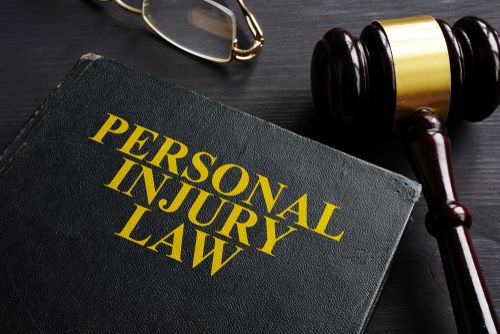The Workers’ Compensation Law in Maryland allows injured employees to get compensated for their lost income and medical expenses. Employment lawyers in Baltimore can help you with your workers compensation insurance case.
Almost every Maryland employer needs workers compensation insurance to cover the costs of employee injuries. However, according to the law, compensation is not based on who is at fault.
As a result, most wounded employees cannot sue their employers for damages. This article examines whether work comp is available from your employer and the penalties for noncompliance.
Maryland Employer Workers Compensation Insurance Laws
In Maryland, most employers with more than one employee are obliged to provide workers compensation insurance for each employee. The employer can purchase this insurance from a licensed and approved company. Businesses can also become self-insured if they get permission from the Workers’ Compensation Commission (WCC).
Employers Responsibilities
Any employer who seeks to hire a worker must present a certificate demonstrating compliance with Maryland worker’ compensation legislation or the insurance policy or binder number. Following either of these options, the employer will supply relevant licensing or permits to facilitate personnel hiring.
The employer must pay all workers compensation insurance, and it must not be taken from the employees’ wages. If an employer deducts any wages for the premiums in Maryland, they commit a misdemeanor.
Workers Compensation Exemptions in Maryland
Some employees are exempt under Maryland law. Workers compensation insurance is not required for the following types of employees and employers:
- Any agricultural employee who works as independent contractors
- Any agricultural employer with less than three full-time employees or an annual payroll of less than $15,000.
- Any seasonal or migratory workers who do not operate any heavy equipment or machinery and who work within a 25-mile radius of their home
- Private home maintenance workers who work for less than 30 consecutive days
- Domestic employees who earn less than $750 per quarter
- Students who work without pay as part of their educational requirements (unless handicapped)
Penalties for Non-Compliance With Workers Compensation Law
The Maryland Workers’ Compensation Act governs the workers compensation system. Employers who do not have workers compensation insurance face legal and criminal sanctions.
In addition, the Workers’ Compensation Commission (WCC) enforcement division will look into any non-compliance or fraud allegations. According to Maryland workers compensation legislation, penalties for non-compliance include the following:
-
Civil Sanctions
A civil penalty is imposed on any employer that willfully produces a false and misleading statement to refuse benefits. Each infraction might result in up to $10,000 for the employer. If the business is a corporation, the officials will be personally liable for this expense.
-
Criminal Penalty
An employer who refuses to maintain insurance coverage is guilty of a crime. If found guilty, the offense is punishable by imprisonment or a fine.
Maryland Workers Compensation Coverage Verification
Maryland offers a free online tool for confirming workers compensation insurance coverage. Anyone can look for a company by name or Federal Employer Identification Number (FEIN).
Only employers with coverage in the state will have their business name and policy number displayed. The information is in charge of the Maryland Workers’ Compensation Commission. So, you can find outfits your employer has workers comp through this platform.
Employment Lawyers Baltimore Discuss What Maryland Workers Comp Cover
Maryland workers compensation insurance helps pay claim expenses, for instance, when an employee or a covered subcontractor is hurt while working. Work comp coverage covers the following:
-
Medical Expenses
Workers compensation insurance covers the costs of medical treatment for injured workers. An ER visit, medical procedures, and medicine prescriptions are a few expenses covered by insurance.
-
Wages
Workers compensation covers income benefits for injured workers. For instance, if you fractured your arm and could not work for eight weeks, the coverage would pay the missed wages.
-
Long-term and Short-term Disability
An injury can sometimes result in a temporary or permanent handicap. Workers compensation insurance pays for ongoing medical expenditures and possibly restores a portion of lost wages due to the disability.
For instance, if an employee’s hand was amputated due to a workplace injury. For the loss of the hand, the employee could be given a lump payment for permanent disability and some temporary disability coverage while recovering.
-
Work-Related Illness
Occupational exposure to unforeseen situations can occur in some sorts of workplaces. Employees working in a chemical mixing operation, for example, may be exposed to chemical irritants, resulting in adverse reactions that make them unwell. A workers compensation plan would pay for treating a disease contracted while on the job.
-
Funeral Charges
Every year, over 50,000 people die at work. The construction and trucking industries employ many of these people. Workers compensation insurance pays for the funeral of dead workers and offers death benefits to the employee’s family.
How Does Workers Compensation Work in Maryland?
Workers compensation insurance is a no-fault scheme to protect employers from costly employee claims arising from workplace injuries. In exchange for providing workers compensation coverage for their employees, several state legislation contains Exclusive Remedy rules that protect covered employers against these lawsuits.
Within 30 days, claims should be reported to a supervisor. Employers should also notify their insurance company within 30 days after receiving any claims or incidents.
Workers compensation insurance protects businesses from legal liability and the costs of injured personnel. When employees are harmed, workers’ compensation insurance covers them. Therefore, it is financially beneficial to both parties.
Employers are not entirely protected by insurance. Employees and employers can both be careless at times. Therefore, workers’ compensation does not cover injuries or negligence caused by breaching the law.
Workers compensation coverage may not protect businesses or employees from legal liability stemming from workplace injuries in some cases, which include:
- Damages caused by a legal violation
- Accidents caused by the use of drugs or alcohol
- Injuries that did not occur as a result of the job
- Clear violations of company policy
- Injuries that did not happen as a result of the job
Why You Should Hire Employment Lawyers Baltimore at Pinder Plotkin, LLC
It can be difficult and time-consuming to collect workers compensation payments if uninsured. It would help to speak with a legal team who can guide you. They will also explain the benefits and complications of a civil action and protect your rights.
The Pinder Plotkin, LLC legal team will help you get the compensation you deserve. Our team is available 24 hours a day, seven days a week, to answer your questions. Contact our office today to book a free case review and get the proper representation from Maryland personal injury attorneys.






